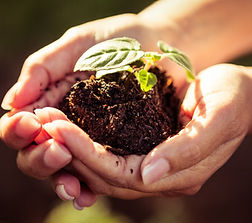
JOIN US!
Together we can create a positive and powerful nexus between Neurodiverse Young Adults and the community.
So Good Farms is a nonprofit, faith-based, financially sustainable, working organic farm, education center, and retail village at Lake Martin, Alabama.
Neurodiverse Young Adults (NYA)* have a fraction of the opportunities afforded most of us. Their prospects are often severely limited regarding making a living, and leading vibrant, independent lives.







So Good Farms is creating opportunites for NYA!

We will provide these amazing young adults – our future Team Members – a multitude of ways to contribute in meaningful and measurable ways, and to live, work, play, and Thrive!
Discover the many interconnected aspects of
So Good Farms and become a passionate supporter!

We Need You
Odds are, you know a family with
a young adult on the spectrum who is experiencing difficulty fitting within our society.
Please join us in transforming lives.
We acknowledge Neurodiverse Young Adults who are often overlooked but are valuable contributors to our community. NYA have “critical mass” impact and are underutilized contributors to the economic development arena.
We plan to not only build and nurture NYA' skills, but also build character and a sense of self-worth. And from this, we hope to inspire those beyond our community by establishing a culture that becomes the catalyst for innovation, creativity, community involvement and lasting change.
Did You Know?
-
The Autism Spectrum Disorder (ASD) in the United States continues to increase 10% each year.
-
In the past 14 years, in the states of Alabama and Georgia, ASD have increased 268%.
-
There are more than 150,000+ residents in Alabama and Georgia who have ASD.
-
It is estimated that at least 10,000+ Alabama and Georgia residents have Down Syndrome.
-
Less than 1⁄3 of adults with Autism Spectrum Disorder, Down Syndrome, and other neurological challenges have appropriate access to residential, therapeutic, and employment services.
-
The median age of adults with ASD is 25.
-
Cases are exponentially growing at an average of 10% annually.
-
The unemployment rate for this population exceeds 84%.
Our Story begins a couple decades ago when Bruce Nicely, So Good Farms' original founder, creates a therapeutic equestrian center for neurodiverse children in Oklahoma. Over the years, Bruce listens to reoccurring, important concerns from parents. Families are grateful for the riding center, but wonder if there is a place where more of their adult children's needs can be met for the long term.
Parents' Questions About Their Neurodiverse Young Adults
How can we find education better tailored to our neurodiverse adult children's individual needs?
How can our young adult children find rewarding employment within a proper support system?
And most agonizing, what will become of our adult children after we pass away?
To Our Future So Good Farms Social Impact Investors & Donors:

So Good Farms is establishing and solidifying collaborative relationships within our state, region, and local community built on trust, mutually beneficial interactions, and brand alignment.
COMMUNITY-AT-LARGE
Our Agrivillage will offer visitors retail options, farm-to-table dining, a farmers market, music and entertainment, a large commercial real estate location, and community education opportunities.
LOCAL JOBS MARKET
Creating a job market of more than 400 jobs strengthens local investment and adds economic impact for the entire community – both locally and within the region.
REGIONAL EDUCATION
So Good Farms also includes a workforce development plan. We train our Team Members, high school students and students attending regional community college and universities.
THE STATE ECONOMY
We will be a one-of-a-kind economic generator for Alexander City, Tallapoosa County, and the state of Alabama. The state will benefit greatly from our jobs, products, educational programs, and community offerings.
Learn more about how to support So Good Farms.
What People Are Saying
"The economic and socioeconomic impact that So Good Farms will have on the Lake Martin area will be tremendous. The So Good Farms' mission to improve the life skills of the young adults working and living on the farm is perhaps the most important benefit our area will receive."
Ed Collari
President & CEO - Alexander City Chamber of Commerce
"So Good Farms will be a life changer for not only our son and family, but thousands just like us. Thank you so much for having the courage to address the needs of families like ours."
K.A. Roswell, GA
"This is so exciting and such an answer to our prayers! Thank you so much!"
T C. Atlanta, GA
"Job creation through the various facets of So Good Farms will provide much needed opportunities in our market. On behalf of the City of Alexander City, we are excited to offer our complete support for So Good Farms"
Chad Odum
Executive Director - Lake Martin Chamber of Commerce
"WOW! Praise God, WOW!
T C. Atlanta, GA
"I have a daughter on the spectrum. So Good Farms provides a very innovative twist on the idea of a working farm with a focus on incorporating residents and locals; and providing opportunities to live, work, and most importantly interact with the community; and to have a sense of belonging. Our family, along with many others, stands in full support of So Good Farms."
J.L. Neurologist, Division Chief of Neurology/Neurosurgery
Sandy Springs, GA
"So Good Farms provides a solid foundation model for a great undertaking to serve our special needs community. We are excited to have our son participate at the farm."
J.P. Athens, GA

WildChildHatCo
* Neurodiversity describes the idea that people experience and interact with the world around them in many different ways; there is no one "right" way of thinking, learning, and behaving, and differences are not viewed as deficits.
The word neurodiversity refers to the diversity of all people, but it is often used in the context of autism spectrum disorder (ASD), as well as other neurological or developmental conditions such as ADHD or learning disabilities.
By Nicole Baumer, MD, MEd, Contributor, and Julia Frueh, MD, Guest Contributor
https://www.health.harvard.edu/blog/what-is-neurodiversity-202111232645













